Citric acid cleaning hacks are about to become your new best friend in the battle against household grime! Are you tired of harsh chemicals and endless scrubbing? Imagine a world where sparkling clean surfaces are achieved with a simple, natural ingredient. Well, stop imagining – that world is here! For centuries, cultures around the globe have harnessed the power of citrus fruits for their cleansing properties. From ancient Egyptians using lemon juice to brighten fabrics to modern-day chefs relying on citric acid to prevent browning, this versatile compound has a rich history of practical application.
But why should you care about citric acid cleaning hacks? Because life’s too short to spend hours battling stubborn stains and mineral buildup! We all crave a clean and healthy home, but the traditional methods can be time-consuming, expensive, and often harmful to the environment. That’s where these DIY tricks come in. I’m going to show you how to unlock the cleaning potential of citric acid, transforming it into a powerful and eco-friendly weapon against everything from hard water stains in your bathroom to stubborn coffee rings in your favorite mug. Get ready to ditch the harsh chemicals and embrace a simpler, more effective way to keep your home sparkling with these amazing citric acid cleaning hacks!
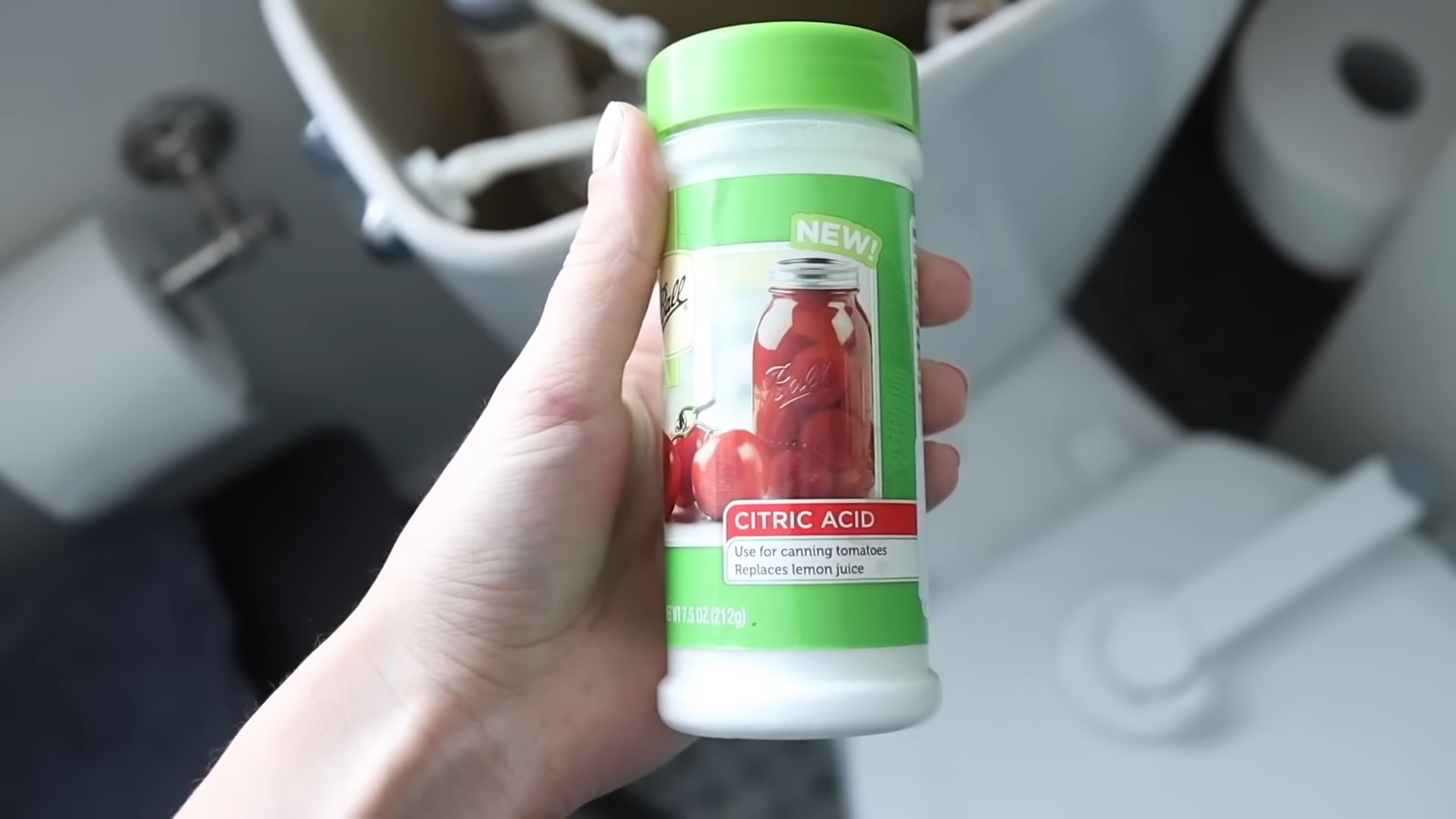
Citric Acid Cleaning Hacks: Your Guide to a Sparkling Home!
Hey there, fellow cleaning enthusiasts! I’m so excited to share my favorite citric acid cleaning hacks with you. Citric acid is a total game-changer – it’s natural, effective, and way more budget-friendly than many commercial cleaners. Plus, it’s super versatile! I use it for everything from descaling my kettle to brightening my laundry. Let’s dive into how you can harness the power of this amazing ingredient to get your home sparkling clean.
What is Citric Acid and Why Use It?
Before we get started, let’s quickly cover what citric acid actually *is*. It’s a naturally occurring acid found in citrus fruits like lemons and limes. You can buy it in powdered form, usually in the baking or cleaning aisle of your grocery store, or online.
Why I love it:
* Natural and Biodegradable: It’s a much more eco-friendly option than harsh chemical cleaners.
* Effective Descaler: It’s fantastic at removing limescale and mineral deposits.
* Deodorizing: It helps neutralize odors.
* Brightening: It can help brighten fabrics and surfaces.
* Affordable: A little goes a long way, making it a cost-effective cleaning solution.
Descaling Your Kettle and Coffee Maker
Limescale buildup in your kettle and coffee maker can affect the taste of your drinks and shorten the lifespan of your appliances. Citric acid is my go-to solution for this!
What you’ll need:
* Citric acid powder
* Water
* Kettle or coffee maker
Step-by-step instructions:
1. Prepare the solution: For a kettle, dissolve 1-2 tablespoons of citric acid in a full kettle of water. For a coffee maker, use 1-2 tablespoons of citric acid per pot of water.
2. Kettle: Fill your kettle with the citric acid solution.
3. Boil the solution: Bring the solution to a boil. Once it boils, let it sit for about 30 minutes to an hour. The longer it sits, the more limescale it will dissolve.
4. Coffee Maker: Pour the solution into the water reservoir of your coffee maker. Run a full brewing cycle.
5. Rinse thoroughly: After the soaking/brewing time, discard the solution. Fill the kettle or coffee maker with fresh water and boil/brew it again to rinse away any remaining citric acid. Repeat this rinsing process 2-3 times to ensure all traces of citric acid are gone.
6. Inspect and repeat if necessary: Check the inside of your kettle or coffee maker. If there’s still some limescale remaining, repeat the process. For stubborn buildup, you might need to use a slightly stronger solution or let it soak for a longer period.
Cleaning Your Shower Head
A clogged shower head can reduce water pressure and make your shower less enjoyable. Citric acid can dissolve mineral deposits that cause these clogs.
What you’ll need:
* Citric acid powder
* Water
* Plastic bag (ziplock works great)
* Rubber band or twist tie
Step-by-step instructions:
1. Prepare the solution: Mix about 1/4 cup of citric acid with 1 cup of hot water in the plastic bag. Make sure the citric acid is fully dissolved.
2. Submerge the shower head: Place the bag over your shower head, ensuring the shower head is completely submerged in the citric acid solution. Secure the bag with a rubber band or twist tie.
3. Soak overnight: Let the shower head soak in the solution overnight. This will give the citric acid plenty of time to dissolve the mineral deposits.
4. Remove and rinse: The next morning, remove the bag and discard the solution. Rinse the shower head thoroughly with clean water.
5. Wipe clean: Use a cloth or sponge to wipe away any remaining residue.
6. Test the shower head: Turn on the shower and check the water flow. It should be significantly improved! If there are still some clogs, you can repeat the process or use a small brush to gently scrub away any remaining debris.
Cleaning Your Toilet Bowl
Citric acid can help remove stains and mineral deposits from your toilet bowl, leaving it sparkling clean.
What you’ll need:
* Citric acid powder
* Toilet brush
Step-by-step instructions:
1. Sprinkle citric acid: Sprinkle about 1/2 cup of citric acid directly into the toilet bowl.
2. Let it sit: Let the citric acid sit in the bowl for at least 30 minutes, or even better, overnight. This will give it time to dissolve stains and mineral deposits.
3. Scrub: Use a toilet brush to scrub the bowl thoroughly, paying attention to any stained areas.
4. Flush: Flush the toilet to rinse away the citric acid and any loosened debris.
5. Repeat if necessary: If there are still some stubborn stains, repeat the process. For really tough stains, you can try making a paste of citric acid and water and applying it directly to the stain before scrubbing.
Cleaning Your Dishwasher
Your dishwasher can accumulate food particles, grease, and mineral deposits over time, which can affect its performance. Citric acid can help clean and deodorize your dishwasher.
What you’ll need:
* Citric acid powder
Step-by-step instructions:
1. Empty the dishwasher: Make sure your dishwasher is completely empty.
2. Add citric acid: Pour about 1/4 cup of citric acid into the detergent dispenser.
3. Run a hot cycle: Run the dishwasher on a hot cycle.
4. Optional: For extra cleaning power, you can also sprinkle a little citric acid on the bottom of the dishwasher before running the cycle.
Brightening Laundry
Citric acid can help brighten white clothes and remove stains. It’s a great alternative to bleach!
What you’ll need:
* Citric acid powder
* Laundry detergent
Step-by-step instructions:
1. Add citric acid to the wash: Add 1/4 to 1/2 cup of citric acid to your washing machine along with your regular laundry detergent.
2. Wash as usual: Wash your clothes as usual, using the appropriate water temperature and cycle for your fabrics.
3. For stain removal: For stubborn stains, you can try pre-soaking the garment in a solution of citric acid and water before washing.
Cleaning Stainless Steel
Citric acid can help remove water spots and fingerprints from stainless steel surfaces, leaving them shiny and clean.
What you’ll need:
* Citric acid powder
* Water
* Spray bottle
* Microfiber cloth
Step-by-step instructions:
1. Prepare the solution: Mix about 1 teaspoon of citric acid with 1 cup of water in a spray bottle.
2. Spray the surface: Spray the citric acid solution onto the stainless steel surface.
3. Wipe clean: Use a microfiber cloth to wipe the surface clean.
4. Dry: Use a clean, dry microfiber cloth to dry the surface.
Removing Hard Water Stains from Glass Shower Doors
Hard water stains on glass shower doors can be a real pain to remove. Citric acid to the rescue!
What you’ll need:
* Citric acid powder
* Water
* Spray bottle
* Sponge or cloth
Step-by-step instructions:
1. Prepare the solution: Mix about 2 tablespoons of citric acid with 1 cup of warm water in a spray bottle.
2. Spray the shower doors: Spray the solution generously onto the glass shower doors, focusing on areas with hard water stains.
3. Let it sit: Allow the solution to sit on the shower doors for about 15-20 minutes. This will give the citric acid time to dissolve the mineral deposits.
4. Scrub gently: Use a sponge or cloth to gently scrub the shower doors. For stubborn stains, you can use a non-abrasive scrubbing pad.
5. Rinse thoroughly: Rinse the shower doors thoroughly with clean water.
6. Dry: Use a squeegee or a clean, dry cloth to dry the shower doors. This will help prevent new water spots from forming.
Cleaning Burnt Food from Pots and Pans
Accidentally burnt food onto your favorite pot or pan? Don’t despair! Citric acid can help loosen the burnt residue.
What you’ll need:
* Citric acid powder
* Water
* Pot or pan
Step-by-step instructions:
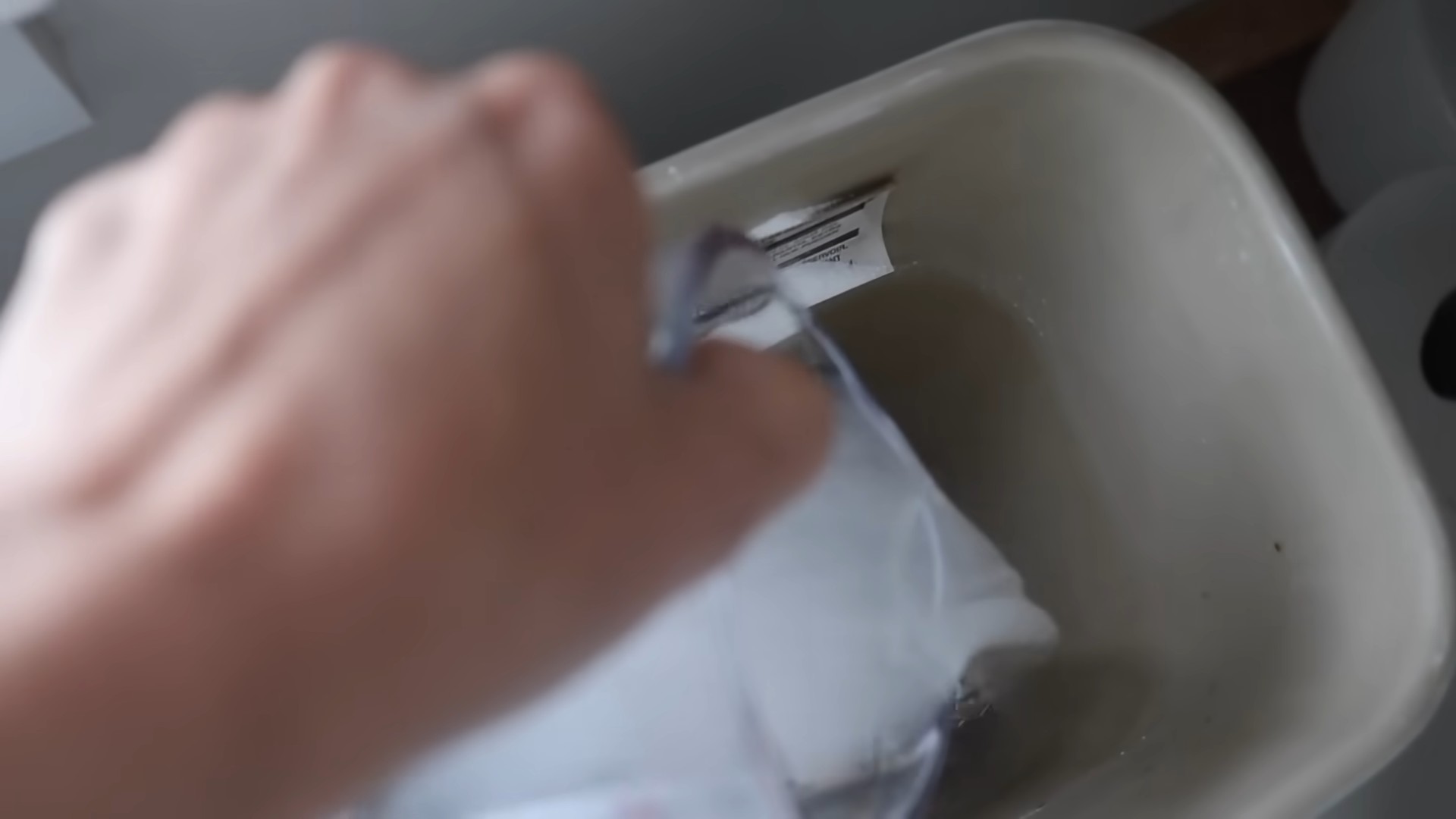
Conclusion
So, there you have it! Citric acid cleaning hacks are not just a trend; they’re a game-changer for anyone looking to simplify their cleaning routine, reduce their reliance on harsh chemicals, and achieve sparkling results. From tackling stubborn hard water stains in your bathroom to reviving your dingy coffee maker, the versatility of citric acid is truly remarkable.
What makes these DIY tricks a must-try? It’s the combination of effectiveness, affordability, and eco-friendliness. Commercial cleaners often come with a hefty price tag and a long list of ingredients you can’t even pronounce. Citric acid, on the other hand, is readily available, budget-friendly, and biodegradable. You’re not only saving money but also contributing to a healthier planet by reducing plastic waste and minimizing your exposure to potentially harmful chemicals.
But the benefits don’t stop there. Citric acid is also incredibly gentle on most surfaces, making it a safer alternative to harsh abrasives or bleach-based cleaners. While it’s always wise to test a small, inconspicuous area first, you can generally use citric acid on stainless steel, porcelain, glass, and even some fabrics without fear of damage.
Looking for variations? Consider adding a few drops of your favorite essential oil to your citric acid solution for a pleasant scent. Lavender, lemon, and tea tree oil are all excellent choices that can enhance the cleaning power and leave your home smelling fresh and clean. For tougher stains, you can create a paste by mixing citric acid powder with a small amount of water. Apply the paste directly to the stain, let it sit for a few minutes, and then scrub gently. You can also use citric acid to make your own dishwasher rinse aid. Simply fill the rinse aid dispenser with a solution of citric acid and water (about 1 tablespoon of citric acid per cup of water).
We’ve covered a wide range of applications, from descaling kettles and coffee makers to cleaning showerheads and removing soap scum. But the possibilities are truly endless. Experiment with different concentrations and application methods to find what works best for you and your home.
Ultimately, the best way to discover the power of citric acid cleaning hacks is to try them for yourself. We encourage you to give these DIY tricks a whirl and see the difference they can make in your cleaning routine. You might be surprised at how effective and easy it is to achieve a sparkling clean home with this simple, natural ingredient.
Don’t just take our word for it! We’d love to hear about your experiences with citric acid cleaning. Share your tips, tricks, and before-and-after photos in the comments below. Let’s build a community of eco-conscious cleaners who are passionate about finding natural and effective ways to keep our homes clean and healthy. Your insights could inspire others to make the switch and discover the many benefits of citric acid. So, go ahead, give it a try, and let us know what you think!
Frequently Asked Questions (FAQ)
What exactly is citric acid, and is it safe to use around my family and pets?
Citric acid is a naturally occurring organic acid found in citrus fruits like lemons, limes, and oranges. It’s a weak acid, which makes it effective for cleaning without being overly harsh. When used as directed, citric acid is generally considered safe for use around families and pets. However, it’s always a good idea to keep citric acid powder and solutions out of reach of children and pets to prevent accidental ingestion. While it’s not highly toxic, consuming large amounts can cause stomach upset. As with any cleaning product, it’s best to ensure proper ventilation when using citric acid and to avoid direct contact with eyes and skin. If contact occurs, rinse thoroughly with water.
Can I use citric acid on all surfaces in my home? Are there any surfaces I should avoid?
While citric acid is generally gentle, it’s not suitable for all surfaces. Avoid using citric acid on natural stone surfaces like marble, granite, and limestone, as it can etch or damage these materials. It’s also best to avoid using citric acid on aluminum, as it can cause discoloration. Before using citric acid on any surface, it’s always a good idea to test it on a small, inconspicuous area first to ensure it doesn’t cause any damage or discoloration. Surfaces that are generally safe for citric acid cleaning include stainless steel, porcelain, glass, plastic, and some fabrics.
How do I make a basic citric acid cleaning solution? What’s the best ratio of citric acid to water?
Making a basic citric acid cleaning solution is simple. The most common ratio is 1-2 tablespoons of citric acid powder per cup of water. For general cleaning, start with 1 tablespoon per cup and increase the concentration if needed for tougher stains. Dissolve the citric acid powder completely in the water before using the solution. You can adjust the ratio depending on the specific cleaning task. For descaling appliances, you might need a stronger solution (e.g., 1/4 cup citric acid per cup of water).
I’ve heard citric acid can be used to descale appliances. How do I descale my kettle or coffee maker with citric acid?
Yes, citric acid is an excellent descaler for kettles and coffee makers. For a kettle, fill it with a solution of 1/4 cup citric acid per cup of water. Bring the solution to a boil and let it sit for 30 minutes to an hour. Then, pour out the solution and rinse the kettle thoroughly with clean water. For a coffee maker, fill the water reservoir with the same citric acid solution and run a full brewing cycle. Then, run two or three cycles with clean water to remove any residual citric acid. This process will effectively remove mineral buildup and improve the performance of your appliances.
My showerhead is clogged with mineral deposits. Can I use citric acid to clean it?
Absolutely! Citric acid is a great way to clean a clogged showerhead. Remove the showerhead from the shower arm (if possible) and soak it in a solution of 1/4 cup citric acid per cup of hot water for several hours or overnight. If you can’t remove the showerhead, you can fill a plastic bag with the citric acid solution and secure it around the showerhead with a rubber band, ensuring the showerhead is fully submerged. After soaking, rinse the showerhead thoroughly with clean water to remove any remaining mineral deposits and citric acid.
Where can I buy citric acid, and what should I look for when purchasing it?
Citric acid is readily available at most grocery stores, health food stores, and online retailers. Look for food-grade citric acid, which is safe for use in cleaning and cooking. It typically comes in a powdered form. When purchasing citric acid, check the label to ensure it’s pure citric acid and doesn’t contain any added ingredients or fillers. You can often find it in the baking or canning section of the grocery store.
Is citric acid safe for septic systems?
Yes, citric acid is generally considered safe for septic systems. Because it is a naturally occurring substance and biodegradable, it won’t harm the beneficial bacteria in your septic tank. Unlike harsh chemical cleaners, citric acid breaks down quickly and doesn’t contain any ingredients that can disrupt the balance of your septic system.
How often should I use citric acid to clean my appliances and surfaces?
The frequency of cleaning with citric acid depends on the level of mineral buildup and the frequency of use of your appliances. For kettles and coffee makers, descaling every 1-3 months is generally sufficient. For showerheads, cleaning every 2-4 months can help prevent clogging. For general surface cleaning, you can use citric acid as needed to remove soap scum, hard water stains, and other types of buildup. Regular cleaning with citric acid can help prevent the buildup of stubborn stains and keep your appliances and surfaces looking their best.

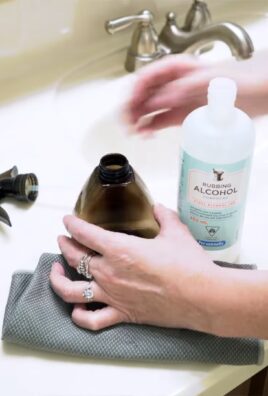
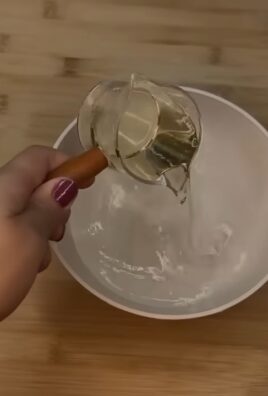
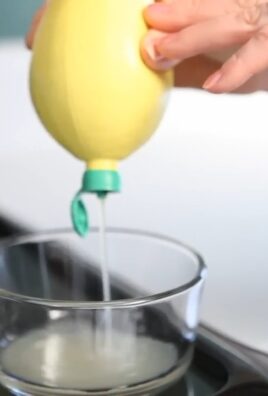
Leave a Comment